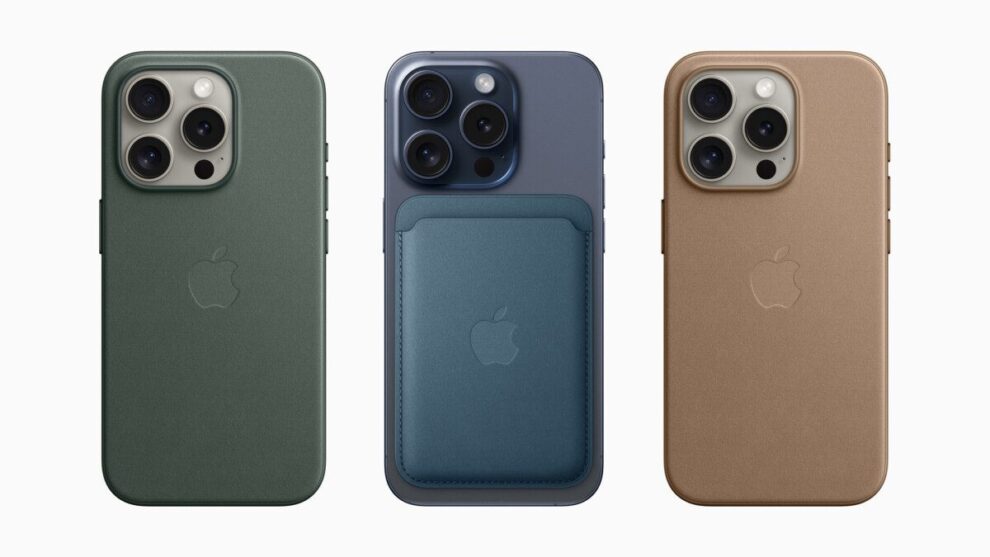Apple, known for its continuous innovation in product design and materials, has recently made headlines with its decision to stop producing leather iPhone cases, introducing FineWoven as the new standard. This change marks a significant shift in the materials used for Apple’s iPhone cases, aligning with broader environmental goals.
Why Apple Ditched Leather
The primary reason behind Apple’s move away from leather is environmental. Leather, while a premium material, has a notable environmental footprint, mainly due to the carbon emissions and other ecological impacts associated with livestock and tanning processes. Apple’s decision aligns with a growing trend among companies to seek more sustainable and less environmentally damaging alternatives.
Introducing FineWoven
FineWoven, the replacement for leather in Apple’s case lineup, is touted as a durable and luxurious alternative. This new material is made from over 60 percent recycled material, offering a satin-like finish and maintaining Apple’s high standards in aesthetics and function. It was introduced across various Apple products, including iPhone cases and Apple Watch bands, signaling a comprehensive shift in material use.
Public and Market Reaction
The reaction to FineWoven has been mixed. Some customers appreciate Apple’s commitment to sustainability, while others express concerns over durability and the feel of the new material compared to traditional leather. The debate extends to environmental ethics, with some arguing that as a byproduct of the meat industry, leather use reduces waste, while others commend the shift to more sustainable materials.
The Market Impact of the Material Shift
This transition may also influence third-party manufacturers and the broader tech accessory market. As Apple sets a precedent, other companies might follow suit, leading to increased innovation in sustainable material alternatives. However, traditionalists who prefer leather might turn to third-party vendors, affecting Apple’s market share in accessories slightly but potentially enlarging the market for alternative products.
Apple’s switch to FineWoven is part of its broader commitment to reducing its environmental impact. While the transition may challenge some consumers’ preferences, it reflects growing demands for sustainability in the tech industry. As more companies likely adopt similar practices, the range of eco-friendly materials is expected to expand, further transforming the tech accessories market.

























Add Comment